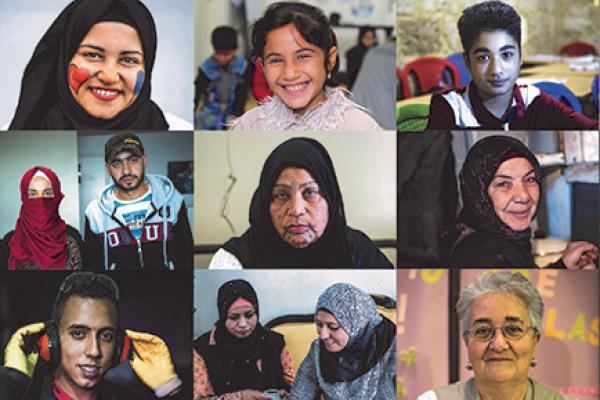The Syria crisis
The conflict in Syria is now in its 11th year and continues to fuel one of the world’s largest refugee crises.
More than 5,6 million Syrians fled their homes to seek refuge in other countries, with the vast majority, more than 5.5 million people, living as refugees in Syria’s neighbourhood: primarily in Türkiye (64.9%), Lebanon (14.8%), Jordan (12.2%) and Iraq (4.7%), [source: UNHCR 2022.]
Since the conflict erupted, Syria’s bordering countries have catered to both the refugees’ needs and those of their overstretched communities, amidst severe domestic and global challenges, such as the COVID-19 pandemic, that has deepened hardship and poverty in the region.
The Brussels Conferences
The EUTF Syria - Madad has been the key instrument for the delivery of the EU's pledges made at the London conference on Syria in 2016.
It has evolved with the priorities of the ensuing Brussels I-VI conferences on the Future of Syria and the Region, that took place: in April 2017 and 2018, March 2019, June 2020, March 2021 and in May 2022.
The overarching objective of the Brussels Conferences is to ensure continued support to the Syrian people and mobilise the international community in support of a comprehensive and credible political solution to the conflict, in line with the UN Security Council Resolution 2254.
Objectives of the EUTF Syria - Madad
The EUTF Syria - Madad has been supporting Syrians and their host communities to overcome the hardest difficulties and obstacles they are confronted with. It pursues two overall objectives:
- Help refugees thrive, not just survive, and thus foster their reliance.
- Assist the host countries and communities and alleviate their most pressing needs.
The EUTF Syria - Madad is recognized as a successful nexus between humanitarian relief and development aid by simultaneously addressing early recovery and relief while supporting longer-term solutions in various sectors.
Governance
The Trust Fund Board establishes and reviews the overall strategy of the EUTF Syria - Madad. The Operational Board decides the allocation of funds to individual actions. Their composition and voting rights are detailed in the Constitutive Agreement.
The Trust Fund Managers propose projects to fund through ad hoc Action Documents, which describe the nature of the projects and their intended results, why they are needed, and sometimes by whom they will be implemented. The Operational Board of the Trust Fund reviews, discusses and approves the projects.





